 Junkyard Roadhouse (Shining Smith #4) by Faith Hunter
Junkyard Roadhouse (Shining Smith #4) by Faith Hunter Narrator: Khristine Hvam
Format: audiobook, ebook
Source: purchased from Amazon, purchased from Audible
Formats available: paperback, ebook, audiobook
Genres: dystopian, post apocalyptic, urban fantasy
Series: Shining Smith #4
Pages: 153
Length: 4 hours and 36 minutes
Published by Audible Studios, Lore Seekers Press on July 2, 2024
Purchasing Info: Author's Website, Publisher's Website, Amazon, Barnes & Noble
Goodreads
Shining Smith stands on the brink of achieving her goals, and yet now she could lose everything.
The presidents of four motorcycle clubs are coming to claim blood sacrifice and to ink her with motorcycle club tats. Her new roadhouse and its charter have to meet their approval or the roadhouse has no future, and neither does Shining.
An injured kid shows up at Smith’s Junk and Scrap, but collapses before he can speak.
A note arrives containing a warning and a plea for help, addressed by someone who knows Shining’s most intimate secrets—her history, her plans, and the names of her friends. The sender claims his daughter has been kidnapped by Shining’s enemies. To keep her secrets, he wants Shining to get his daughter back.
In order to rescue the hostage and keep her junkyard, her roadhouse, her people, and the cats alive, Shining Smith will have to suffer, fight, and bargain her way out of danger. All without accidently transitioning anyone—creating an accidental thrall—no matter how much her nanobots want her to.
Lock and load. It’s going to be a bumpy ride.
My Review:
 When I finished the previous audiobook in this utterly awesome, completely riveting, absolutely compelling series that began with Junkyard Cats four years ago, that story, Junkyard War, felt like a slam-bang ending.
When I finished the previous audiobook in this utterly awesome, completely riveting, absolutely compelling series that began with Junkyard Cats four years ago, that story, Junkyard War, felt like a slam-bang ending.
And it kind of was. But as things turned out – thankfully, blissfully and painfully – it wasn’t the end of Shining’s story at all – merely the end of the beginning. Because Junkyard Roadhouse is clearly – and OMG this listener/reader is so, so glad – the opening of a whole new chapter in Shining Smith’s quest to keep her people safe – no matter how much of her world she has to take under her protection in order to make that happen.
It’s a much, MUCH bigger world than we saw in the first book in the series, Junkyard Cats. In that opening story, the world came to Shining in the junkyard she inherited from her ‘Pops’. And it came to take her out and take over everything she had and everyone she had come to love – no matter how reluctantly.
But the enemy that came for her, Clarice Warhammer, is dead. Dead at the hands, and guns of Shining, her friends and allies, and the clowder of sentient battle-cats who are probably the true masters of Shining’s junkyard. Just ask them.
 Shining’s reward for taking out Warhammer is three-fold. Warhammer and her nest have been eliminated – with extreme prejudice. So that’s one enemy in the ground. Shining took all of Warhammer’s intel as part of the spoils of war – a vast increase in Shining’s knowledge and insight into the world around her and the enemies that were backing Warhammer and will absolutely see Shining and her allies as a threat.
Shining’s reward for taking out Warhammer is three-fold. Warhammer and her nest have been eliminated – with extreme prejudice. So that’s one enemy in the ground. Shining took all of Warhammer’s intel as part of the spoils of war – a vast increase in Shining’s knowledge and insight into the world around her and the enemies that were backing Warhammer and will absolutely see Shining and her allies as a threat.
Because they absolutely are.
But first, Shining gets to collect her reward – a reward for which she has already paid in blood and will again. It’s not really a reward for herself – or at least she doesn’t see it that way. What she sees is the increased responsibility for keeping her people – whether two-legged or four – as safe and secure as she can make them.
So, with the posturing and permission of the motorcycle clubs that control the region, that were her allies in the battle with Warhammer, Shining Smith officially opens the Junkyard Roadhouse, a club chapter house that includes a restaurant and rooms to rent, trading post, and neutral ground – owned, operated and administered in all of its somewhat safe and mostly secure glory by Shining Smith herself and her own entirely independent motorcycle club.
It’s all hers – if she can manage to keep it.
After all, Warhammer was just the tip of a very dirty iceberg filled with powerful enemies – and Shining Smith is already in their sights. What none of them, not the military, not the Gov, not the Hand of the Law, recognize is that they are already in hers – and that hers are considerably more than they ever imagined.
Junkyard Roadhouse marks the beginning of THEIR end – they just don’t know it yet.
 Escape Rating A: This is the story I felt compelled to finish last Friday, to the point where, as much as IMHO Khristine Hvam thoroughly embodies the voice of Shining Smith, I switched to the text – grateful that the text was already available for a change – in order to see how Shining got herself and her people out of the pickle she was in, turned it to her advantage, AND set the stage for the next book in the series.
Escape Rating A: This is the story I felt compelled to finish last Friday, to the point where, as much as IMHO Khristine Hvam thoroughly embodies the voice of Shining Smith, I switched to the text – grateful that the text was already available for a change – in order to see how Shining got herself and her people out of the pickle she was in, turned it to her advantage, AND set the stage for the next book in the series.
Because Shining CLEARLY isn’t remotely done with the black ops of the military, their supporters in the Gov OR the corrupt Hands of the Law – all of which seem to be legion, planning something big and nefarious and aiming straight for her.
But that’s for later – and this reader is oh-so-happy that there will be a later, because Shining’s story could easily have ended with her victory at the end of Junkyard War.
Whether you experience this series in text or in the marvelous audio rendition, the series and whether or not you will like it rides or dies on the voice of its protagonist Shining Smith. If her blend of bravado and snark, her ability to take charge but her internal doubts about her ability to lead, her impostor syndrome combined with the utter certainty that if she doesn’t do it the job won’t get done – in other words, all the things that made ‘Little Girl’ survive the mamabot to become Shining Smith – if that voice and attitude trips your reading trigger you’ll love Shining.
As her friends and especially her enemies would attest, however, Shining Smith is a bit of an acquired taste – and there are parts of her world that are depressing as hell. The conditions that she has survived certainly depress the hell out of her frequently and often. She just puts on her ‘big girl panties’, gets on her bike and rides out to meet those conditions whenever and wherever necessary and that’s what I love about her and her story.
This particular entry in the series is a bit of a bridge between those initial three books and what’s coming next – and it starts with an excruciating rebirth that sometimes felt like it got lingered over a bit too long. Your mileage may vary but the change from Shining Smith, member of the OMW to Shining Smith, president of the independent Junkyard Roadhouse motorcycle club is both bloody and painful to the point where if I hadn’t already been all in on this series I might have turned off – or at least switched to text which wouldn’t have been quite so… visceral.
 Meaning that this is not the place to start your experience of Shining’s truly fucked up future Earth. Start with Junkyard Cats – you’ll be glad you did. I was then, I am now and I can’t wait for more.
Meaning that this is not the place to start your experience of Shining’s truly fucked up future Earth. Start with Junkyard Cats – you’ll be glad you did. I was then, I am now and I can’t wait for more.
One final note on the audio, well, sorta/kinda on the audio. I’ve enjoyed Shining’s voice so much, especially as portrayed by Khristine Hvam, that I can’t believe it’s taken me this long to check out whether she is also the voice of Jane Yellowrock in the author’s signature series of the same name. She is, which just threw 15 more books, and counting, onto the top of my TBL (that’s To Be Listened) pile. Which I absolutely did not need but am still incredibly happy about because it will give me something (else) to dive into while I wait for Shining’s next adventure/confrontation/full-scale war.

 The Hermit Next Door by
The Hermit Next Door by  Escape Rating B: I finished this book with a lot more mixed feelings than I expected. I thought I would just love it (spoiler: I did love
Escape Rating B: I finished this book with a lot more mixed feelings than I expected. I thought I would just love it (spoiler: I did love  Ghostdrift (Finder Chronicles #4) by
Ghostdrift (Finder Chronicles #4) by  Over the course of the series (
Over the course of the series ( Escape Rating A+: June is Audiobook Month, and this final book in the
Escape Rating A+: June is Audiobook Month, and this final book in the  Together, those three plots, Belos’ need for closure, Captain Ahab – actually Captain Todd – following Belos where no one REALLY should have gone before, or again, and all the crews stuck on their very own tiny Gilligan’s Island planetoid, doing their best – or worst – to get along well enough to get back home.
Together, those three plots, Belos’ need for closure, Captain Ahab – actually Captain Todd – following Belos where no one REALLY should have gone before, or again, and all the crews stuck on their very own tiny Gilligan’s Island planetoid, doing their best – or worst – to get along well enough to get back home.
 The Bodies in the Library (First Edition Library Mystery, #1) by
The Bodies in the Library (First Edition Library Mystery, #1) by  The discovery of a body in the Society’s library, the morning after a contentious meeting of a local writers’ group, seems a bit too much like it’s straight out of the pages of one of the Agatha Christie novels sitting on a nearby shelf, The Body in the Library.
The discovery of a body in the Society’s library, the morning after a contentious meeting of a local writers’ group, seems a bit too much like it’s straight out of the pages of one of the Agatha Christie novels sitting on a nearby shelf, The Body in the Library. Speaking of media, however, the audio was fine, and it certainly got me over the rough first third of the book that drove me away the first time around. So I’m glad I picked it up – even though once the story finally got started I got more than caught up in it enough to want to find out whodunnit a whole lot faster than audio would allow.
Speaking of media, however, the audio was fine, and it certainly got me over the rough first third of the book that drove me away the first time around. So I’m glad I picked it up – even though once the story finally got started I got more than caught up in it enough to want to find out whodunnit a whole lot faster than audio would allow.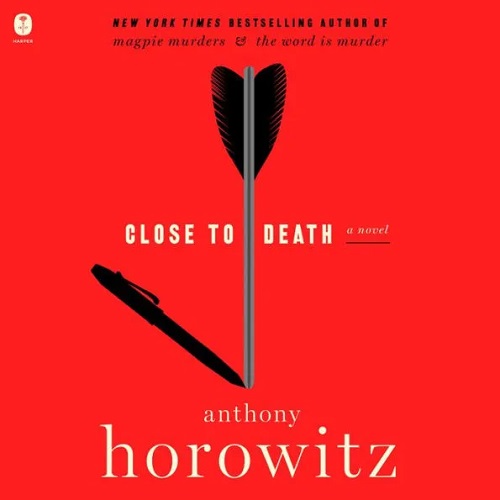 Close to Death (Hawthorne & Horowitz, #5) by
Close to Death (Hawthorne & Horowitz, #5) by 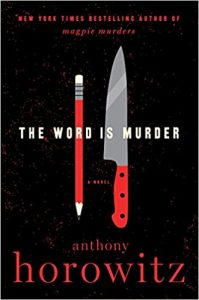
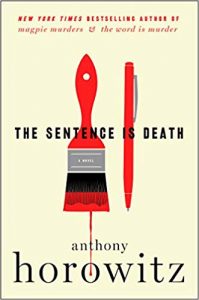
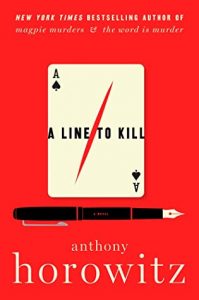
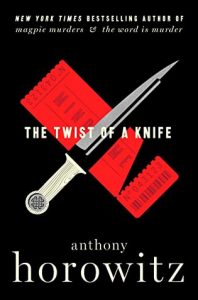
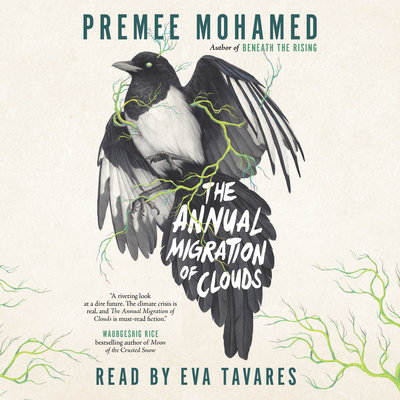 The Annual Migration of Clouds by
The Annual Migration of Clouds by  Escape Rating A-: I picked up this book because I read the sequel to this,
Escape Rating A-: I picked up this book because I read the sequel to this,  What You Are Looking For Is in the Library by
What You Are Looking For Is in the Library by  As much as I enjoyed the narration, which I very much did, it’s the stories themselves that give the collection its charm, as was true in similar books such as
As much as I enjoyed the narration, which I very much did, it’s the stories themselves that give the collection its charm, as was true in similar books such as 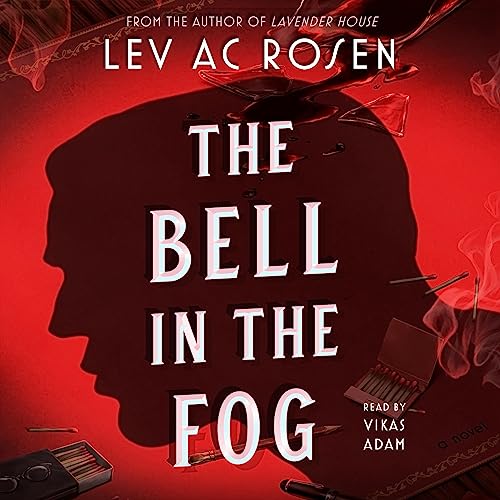 The Bell in the Fog (Evander Mills, #2) by
The Bell in the Fog (Evander Mills, #2) by  Andy needs the case because he needs the money. Business for an ex-cop turned P.I. isn’t good when EVERYONE remembers that he used to be a cop – the people who hassle and roust and beat up guys just like them Just like him, which makes the betrayal that much worse.
Andy needs the case because he needs the money. Business for an ex-cop turned P.I. isn’t good when EVERYONE remembers that he used to be a cop – the people who hassle and roust and beat up guys just like them Just like him, which makes the betrayal that much worse.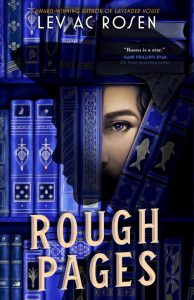 And what that means for anyone trying to just live their life the best they can where that life has already been declared a criminal act.
And what that means for anyone trying to just live their life the best they can where that life has already been declared a criminal act.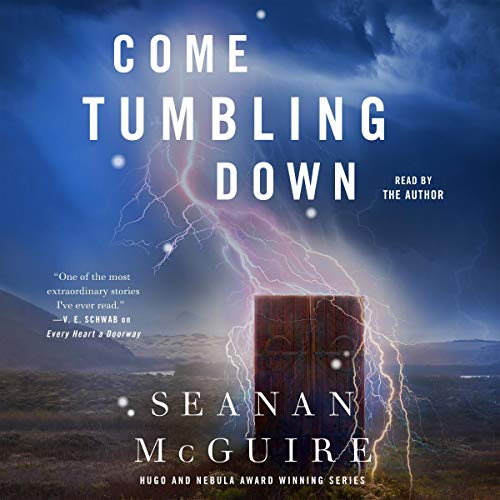 Come Tumbling Down (Wayward Children, #5) by
Come Tumbling Down (Wayward Children, #5) by 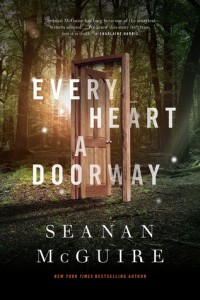 I’ve been winding my way through Seanan McGuire’s
I’ve been winding my way through Seanan McGuire’s 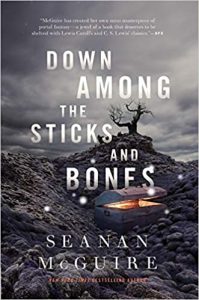 Jack is in dire straits when she returns to the school, and she needs the help of the only friends she can trust to see that, in spite of appearances, she’s still Jack even though she’s in her twin sister Jill’s body. They are the only people who know her well enough to understand that her OCD will not allow her to just adapt to living her life in the unclean thing that murdered her mentor – even if Jill’s full, entire, complete and utterly nefarious plot is to destroy both her sister Jack and the balance that keeps The Moors relatively safe and functional for the human population that was born to a world where vampires contend with mad scientists and drowned gods prey upon ships and shorelines, where the sun only rises behind thick clouds and lightning storms happen whenever the Moon wills it so.
Jack is in dire straits when she returns to the school, and she needs the help of the only friends she can trust to see that, in spite of appearances, she’s still Jack even though she’s in her twin sister Jill’s body. They are the only people who know her well enough to understand that her OCD will not allow her to just adapt to living her life in the unclean thing that murdered her mentor – even if Jill’s full, entire, complete and utterly nefarious plot is to destroy both her sister Jack and the balance that keeps The Moors relatively safe and functional for the human population that was born to a world where vampires contend with mad scientists and drowned gods prey upon ships and shorelines, where the sun only rises behind thick clouds and lightning storms happen whenever the Moon wills it so.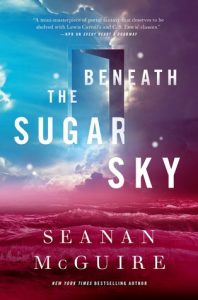 Escape Rating A-: The
Escape Rating A-: The 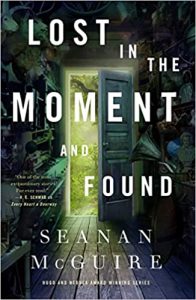 One of the core tenets of the whole, entire,
One of the core tenets of the whole, entire, 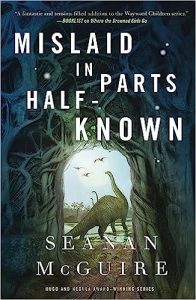 So, on the surface there’s a story about vampires and mad scientists set in a place that the great horror movies might have used for their inspiration – if not their actual setting. Underneath that there’s a deeper story about balances of power and how devastating it can be when those balances become unbalanced. And the story of one heroine who is willing to throw her own body into the breach – along with her sister’s corpse – to preserve that balance at truly any and every cost.
So, on the surface there’s a story about vampires and mad scientists set in a place that the great horror movies might have used for their inspiration – if not their actual setting. Underneath that there’s a deeper story about balances of power and how devastating it can be when those balances become unbalanced. And the story of one heroine who is willing to throw her own body into the breach – along with her sister’s corpse – to preserve that balance at truly any and every cost.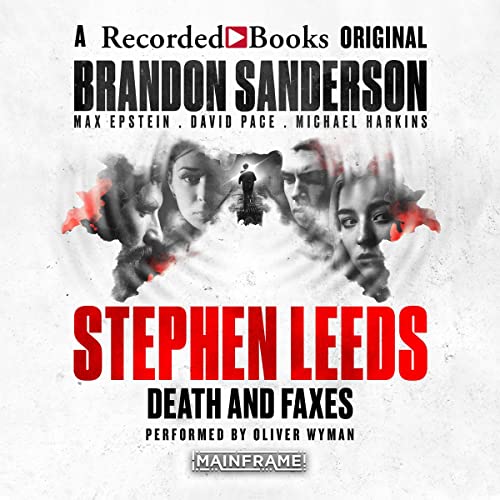 Stephen Leeds: Death and Faxes by
Stephen Leeds: Death and Faxes by 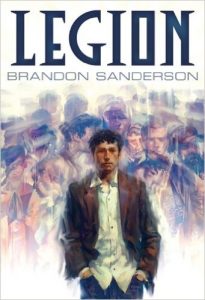 The case that finds Stephen Leeds in this audio-only entry in the
The case that finds Stephen Leeds in this audio-only entry in the 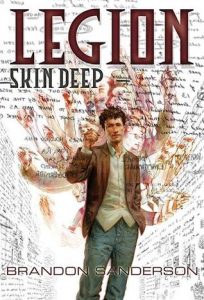 It’s only the beginning, because Stephen is determined to get to the bottom of this case, following a trail of victims around the country even as the structure of his increasingly fragile mental landscape falls into tatters.
It’s only the beginning, because Stephen is determined to get to the bottom of this case, following a trail of victims around the country even as the structure of his increasingly fragile mental landscape falls into tatters.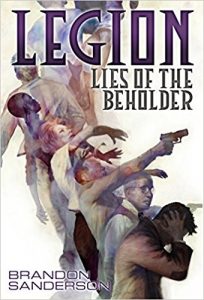 So I wasn’t expecting to see Stephen Leeds again when I found this audio-only entry in the series. An entry that doesn’t occur AFTER
So I wasn’t expecting to see Stephen Leeds again when I found this audio-only entry in the series. An entry that doesn’t occur AFTER 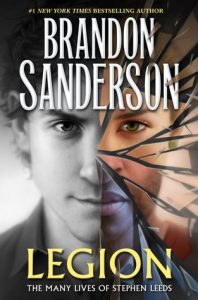 So, a whole lot of mixed feelings, leaving me with the conclusion that fans of the series, like me, will probably enjoy the trip down memory lane to visit Stephen and his aspects again. (However, the comment in the blurb about Stephen being perfectly sane but his hallucinations all being quite mad isn’t merely a bit off – it’s completely wrong. A fair number of his aspects are quirky and/or eccentric, but none of them are actually ‘mad’, and neither is Stephen Leeds. His coping mechanism is just eccentric and sometimes expensive, but works for him and does no harm to anyone else. There are worse ways to get by.)
So, a whole lot of mixed feelings, leaving me with the conclusion that fans of the series, like me, will probably enjoy the trip down memory lane to visit Stephen and his aspects again. (However, the comment in the blurb about Stephen being perfectly sane but his hallucinations all being quite mad isn’t merely a bit off – it’s completely wrong. A fair number of his aspects are quirky and/or eccentric, but none of them are actually ‘mad’, and neither is Stephen Leeds. His coping mechanism is just eccentric and sometimes expensive, but works for him and does no harm to anyone else. There are worse ways to get by.)